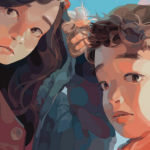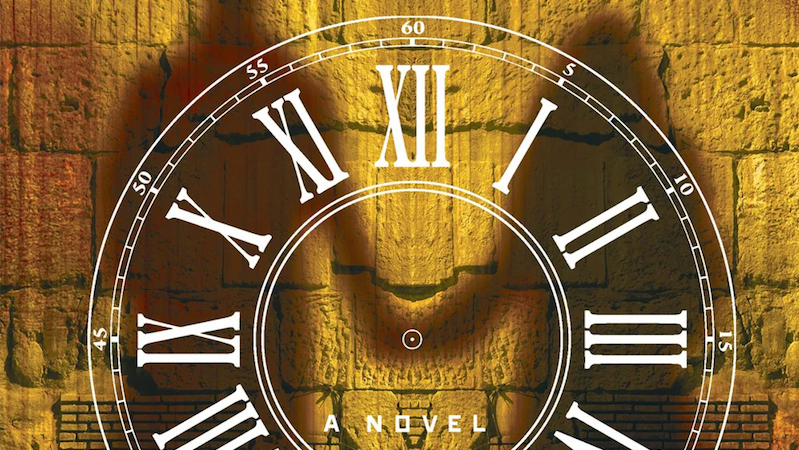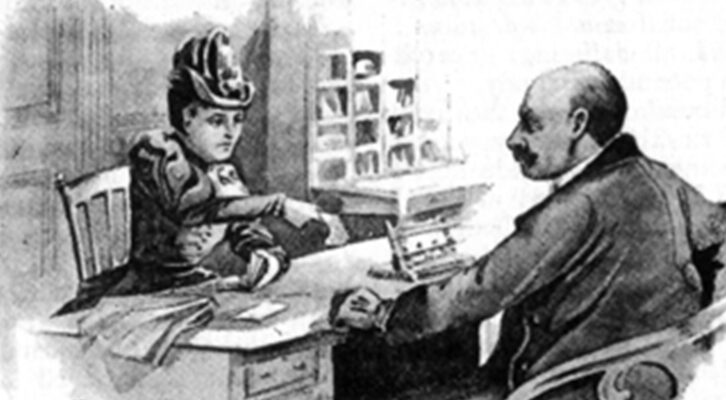20 Short Novels To Stay Up All Night Reading
Unputdownable books you can finish in bed tonight
Yesterday saw the release of Samanta’s Schweblin’s terrifying Fever Dream. I know this is one of those things people who write about books say, but I actually mean it: this is a book that will keep you up at night—at least one night, anyway, because once you start, you’ll have to finish. You’ll be too disturbed not to. Luckily, it’s short, so you’ll only be captive for a few hours. Inspired by Schweblin’s new book, here is a list of novels you can read overnight—compelling enough that you won’t be lured by sleep, but short enough that once you finish, you’ll still have enough time to clock some hours before you have to go to work. If you can sleep, that is.
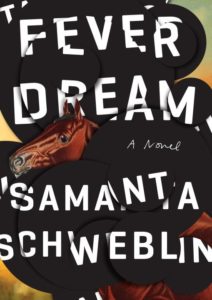
Samanta Schweblin, Fever Dream
This is a weird hallucination of a book—reading it feels like an experience, like something that happens to you, as infectious and mysterious and unstoppable and possibly magical as the disease that powers its plot. There is absolutely no way to put it down without breaking the spell, so make sure you’re comfy.
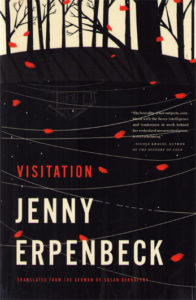
Jenny Erpenbeck, Visitation
A lovely, slim novel that tells the stories of the various inhabitants of a house on a wooded bit of land near a lake outside Berlin, before, during and after WWII—but like Woolf’s To the Lighthouse, it is not really about the inhabitants, but rather very pointedly about time, and the pull of place. The overlapping narratives and use of time even within narratives give the sense of colored transparencies laid over one another—though perhaps this occurs to me only because of the colored glass of the house’s windows. All this doesn’t sound particularly gripping, I know, but while I did find it a bit slow at the beginning, after page 50 I really couldn’t stop watching these lives unfold. Some brutality, some elegiac passages, some electrifying ones; much obvious intelligence at work.
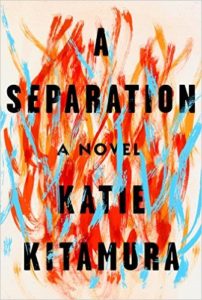
Katie Kitamura, A Separation
This one’s a cheat, because it doesn’t actually come out until February, but mark your calendar for sleeplessness, because if you’re anything like me, you’ll read it straight through without stopping. The plot is, essentially, this: a woman follows her estranged (and unresponsive) husband to Greece, where she proceeds to look for him (and discover the mysteries he’s left in his wake). Kitamura’s spare language somehow seems barely able to control the emotion it signifies. In some ways, this is a meditation on the stories we paint onto other people, and how little we can really know them—which, honestly, keeps me up at night as much or more than any missing person.
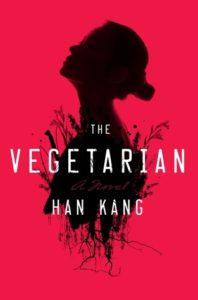
Han Kang, The Vegetarian
Yes, like everyone else, I was obsessed with this novel—the story of a South Korean woman who gradually, and dramatically, removes herself from reality—this year. Reading it is as compulsive as its subject’s vegetarianism—except unlike her, you’ll want more, more, more, instead of less, less, less.
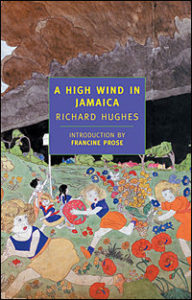
Richard Hughes, A High Wind in Jamaica
A surprisingly terrifying short novel about children kidnapped by pirates, elevated from its silliness by surprising moments of violence and introspection, as well as repeated flourishes of literary brilliance. Also, it’s funny. Take for instance, this passage: “Being nearly four years old, she was certainly a child: and children are human (if one allows the term “human” a wide sense): but she had not altogether ceased to be a baby: and babies are of course not human—they are animals, and have a very ancient and ramified culture, as cats have, and fishes, and even snakes: the same in kind as these, but much more complicated and vivid, since babies are, after all, one of the most developed species of the lower vertebrates.”
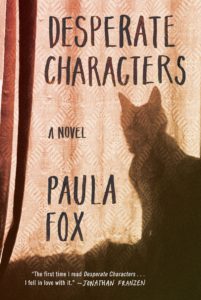
Paula Fox, Desperate Characters
At this beginning of this novel, Sophie Bentwood is bitten by a cat that may or may not have rabies. The ensuing domestic drama—wonderful and terrible in its own right—is then overlaid with this crazed, manic specter of disease that had me turning pages like a madwoman.

Donald Antrim, Elect Mr. Robinson for a Better World
For my money one of the best novels ever written, of any length. Something bad is happening in Pete Robinson’s town—something that has his neighbors building moats around their homes and all the members of the Rotary Club finding their inner animals (his wife is, apparently, the prehistoric coelacanth). Oh, and the mayor has been drawn and quartered. Even if you don’t want to know what happens next, this novel will have you flipping pages just to get to each new delicious surrealist detail.
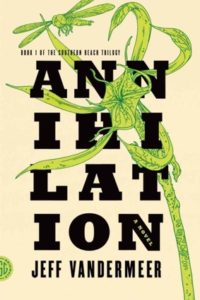
Jeff VanderMeer, Annihilation
An eco-horror novel that is a study in tension and unanswered questions. Who are they, the Psychologist, the Surveyor, the Anthropologist, and the Biologist? What is Area X? Where are the other expeditions (eleven in all)? What has happened here? Will it happen again? Now?
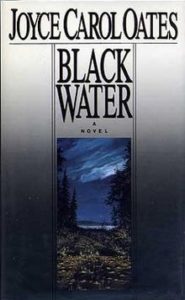
Joyce Carol Oates, Black Water
You’d think that the structure of this novel, a sort of mythologized retelling of the Chappaquiddick incident, would strip it of any of its tension—after all, it begins with the car going off the road. But as Oates goes over and over the event and everything that led up to it—from different angles, from different moments, from different points of view—the reader keeps hoping that that repeated phrase (“As the black water filled her lungs, and she died.”) will somehow be made untrue. And yet, we know it will not be. And yet, we keep reading, more horrified by the moment.
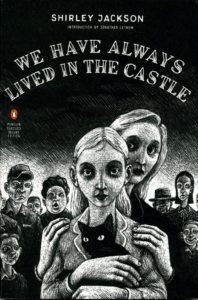
Shirley Jackson, We Have Always Lived in the Castle
Jackson’s incredible, dark novel tells the story of the Blackwood family—the recently-depleted Blackwood family, who were mostly poisoned, via arsenic, not too long ago. But who is the culprit? And what will the town do to the family members who are left? And why is Shirley Jackson no longer around to give us such beautifully creepy books?
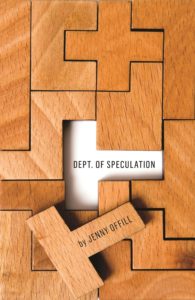
Jenny Offill, Dept. of Speculation
A psychological portrait of a woman in distress that manages to feel packed with feeling despite its airy presentation—but more than that, this is an angry book, and the shimmer off the character/narrator/Offill’s rage is gripping all on its own.
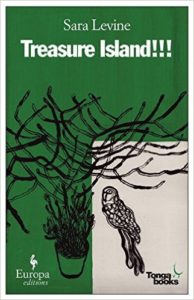
Sara Levine, Treasure Island!!!
If you’d like to stay up all night alternating between laughter and groans (hey, I don’t know your life), this is the book for you. Its protagonist is a terrible person who decides to change her boring, wretched life by adhering to the values as extolled in the eponymous Robert Louis Stevenson novel. Yes, the one about pirates. Things do not go well. But at least they go.
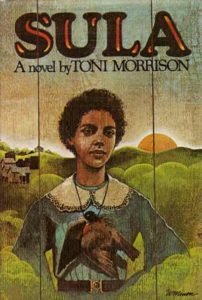
Toni Morrison, Sula
I’m always surprised when I remember how short this book is—it holds so much in so few pages. Morrison’s gripping classic tells the story of an intense, dangerous friendship filled with secrets, betrayal, and yes, love. There’s something about Sula (the character, I mean, though the book too) that’s instantly unshakeable.
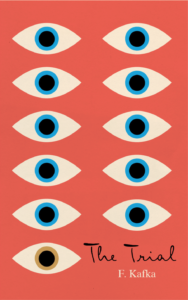
Franz Kafka, The Trial
In the category of classics that you forgot were actually super short is Kafka’s best-known novel, a harrowing, tense story of unfounded persecution. Yes, it’s unfinished (Kafka, I’m afraid, was not a natural novelist), but that doesn’t stop it from creeping up the back of your neck. After all, someone could be watching you at this very moment.

Adolfo Bioy Casares, The Invention of Morel
This novel is the diary of a fugitive, hiding on a strange island, who falls in love with one of the mysterious tourists that appear on his shores. A hallucinatory examination of the nature of reality, with a romantic twist, which won high praise from Jorge Luis Borges and Octavio Paz, among others.
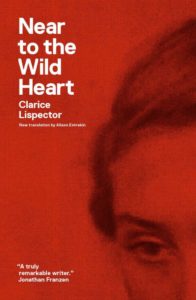
Clarice Lispector, Near to the Wild Heart
I’ve always thought of Lispector’s first novel as a pulsing, beating thing—not just near, but the wild heart itself. It’s not a plot-heavy book, but the internal life of the amoral, incendiary Joana—and what she will do, and what she will think, and what she will say—is endlessly fascinating.
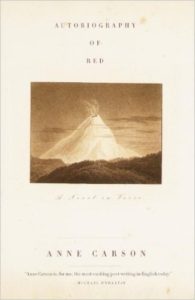
Anne Carson, Autobiography of Red
Anne Carson is likely the only writer who could ever have me wondering if, in the end, the winged monster (that’d be Geryon) is going to get the Greek Hero he loves (that’d be Herakles). As a novel in verse, this book frankly skips by—most of the time it will take you to read will be spent lingering over the lines, wanting to live in them a little longer.
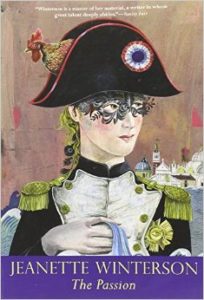
Jeanette Winterson, The Passion
In this mesmerizing, sexy weirdo of a book (webbed toes are involved), a young French soldier falls in love with a Venetian cardsharp—except that she is no longer in possession of her heart. It’s in a palace somewhere, locked away, and he has to go get it. A sharp adventure that also asks the question: what can we lose in a single gamble? And what can we gain?
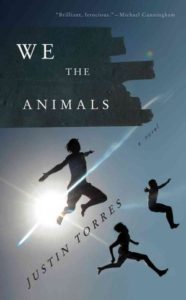
Justin Torres, We the Animals
I was sold on this book—a coming of age story told in luminous prose—from the very first paragraph, which by itself might keep me up for a few extra hours, looking for some of that more:
“We wanted more. We knocked the butt ends of our forks against the table, tapped our spoons against our empty bowls; we were hungry. We wanted more volume, more riots. We turned up the knob on the TV until our ears ached with the shouts of angry men. We wanted more music on the radio; we wanted beats; we wanted rock. We wanted muscles on our skinny arms. We had bird bones, hollow and light, and we wanted more density, more weight. We were six snatching hands, six stomping feet; we were brothers, boys, three little kings locked in a feud for more.”
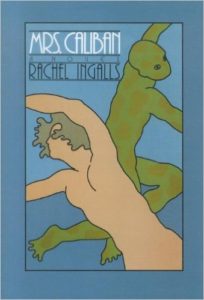
Rachel Ingalls, Mrs. Caliban
The story of a disaffected housewife with a cheating husband, who starts an affair with—wait for it—a 6-foot-7 amphibious monster man named Larry. So.



